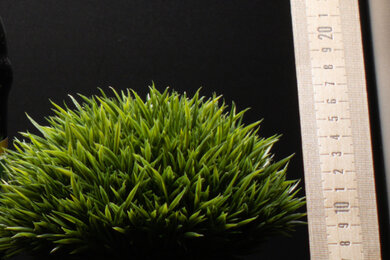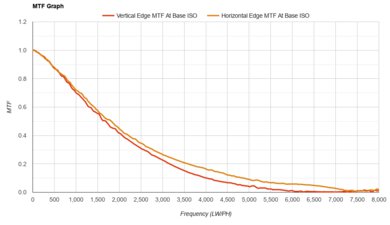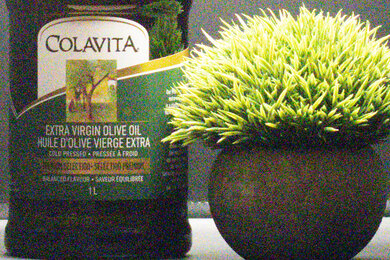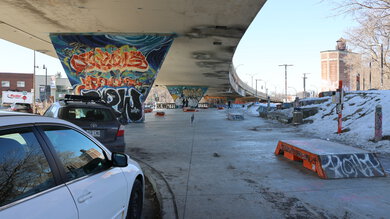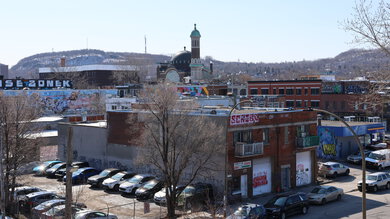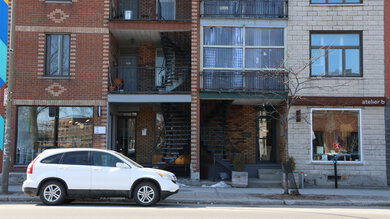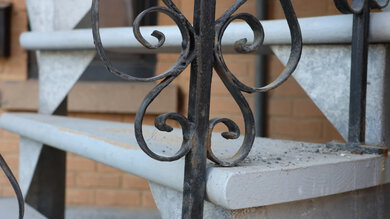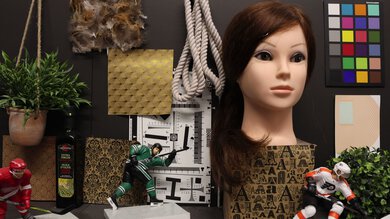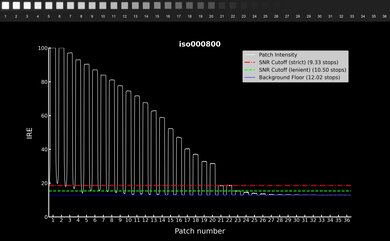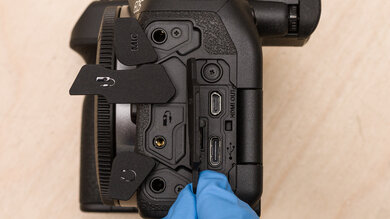The Canon EOS R7 is a mid-range APS-C camera that sits below the Canon EOS R6 Mark II in Canon's mirrorless lineup. It's been touted as a spiritual successor to the sports-and-wildlife-oriented Canon EOS 7D Mark II DSLR from 2014. With all the advantages of modern mirrorless technology, however, it's versatile enough for all kinds of photo and video work. With a high-res sensor, responsive autofocus and quick burst shooting, as well as in-body image stabilization (IBIS), it's a dream for photographers and hybrid shooters who don't want or need a full-frame sensor.
Our Verdict
The Canon R7 is great for travel photography. It isn't the most portable camera, but it has a fantastic battery life for a mirrorless model. It's also well-built and weather-sealed to give you some added peace of mind when shooting in adverse weather conditions. The image quality is also great overall, and it has a snappy autofocus system for moving subjects.
- Impressive battery life.
- Well-built, weather-sealed construction.
- Excellent autofocus.
- Not especially portable for travel.
- Noise handling is just okay.
The Canon R7 is good for landscape photography. Its high-resolution sensor gives you some leeway to crop your photos, and the image quality is great for an APS-C sensor. However, it doesn't have as much dynamic range as full-frame models, so it can't capture as much detail in high-contrast scenes. Its noise handling is just okay in low light, but the overall image quality is still great. It's also a well-built camera with a relatively long battery life for longer shooting days.
- Impressive battery life.
- Well-built, weather-sealed construction.
- Excellent autofocus.
- Great dynamic range.
- Noise handling is just okay.
The Canon R7 is excellent for sports and wildlife photography. It has a very quick max burst rate and a fairly large image buffer. Its autofocus system supports human, animal, and vehicle subject detection and is quite effective at tracking fast-moving subjects. The image quality is also great, though its noise handling in low light is okay. Beyond that, it has a very good battery life for a mirrorless camera.
- Impressive battery life.
- Well-built, weather-sealed construction.
- Excellent autofocus.
- Very fast burst shooting.
- Noise handling is just okay.
The Canon R7 is good for vlogging, especially for sit-down vlogs. It isn't particularly portable for on-the-go recording; however, it does feel comfortable to shoot with and has a fully articulated screen that makes it easy to monitor yourself while recording. The video quality is great, and the camera's autofocus is incredibly reliable, ensuring your face stays in focus while you record.
- Impressive battery life.
- Well-built, weather-sealed construction.
- No recording time limit.
- Rolling shutter can be quite noticeable.
The Canon R7 is fantastic for studio video. It can record 4k video at up to 60 fps without a crop and supports internal 10-bit 4:2:2 video recording in C.LOG 3 format, which has great dynamic range and gives you plenty of leeway to color-grade and process your videos. It also has an incredible battery life for video recording and doesn't overheat during long sessions. On top of that, there's no recording time limit. That said, its APS-C sensor doesn't have as much dynamic range as full-frame alternatives.
- Impressive battery life.
- Well-built, weather-sealed construction.
- Internal 10-bit 4:2:2 Log recording.
- No recording time limit.
- Rolling shutter can be quite noticeable.
The Canon R7 isn't meant for a POV-style action video, though it does a good job if you want to record the action from the sidelines. It has plenty of frame rate options, including a high frame rate mode in 1080p for super slow-motion clips at 120 fps. However, it isn't the most portable camera and isn't designed to be mounted to action video rigs.
- Impressive battery life.
- Well-built, weather-sealed construction.
- Limited selection of high frame rates in 4k.
- Not especially portable for action video.
- Rolling shutter can be quite noticeable.
The Canon R7 has good RAW photo performance. Its sensor has a great dynamic range, so it can capture a wide array of detail in high-contrast scenes. Images also have plenty of fine detail thanks to the sensor's high resolution, which gives you a bit more leeway to crop your photos. Unfortunately, the camera's noise management is just okay, so it doesn't perform amazingly well in low-light conditions where you have to bump up the ISO.
- Great dynamic range.
- High resolution sensor captures good amount of fine detail.
- Noise handling is just okay.
Performance Usages
Changelog
-
Updated Feb 19, 2025:
We wrote text for the new tests added in Test Bench 0.13 and updated the Verdict section accordingly.
- Updated Feb 11, 2025: We've converted this review to Test Bench 0.13. We've added new tests for Video Dynamic Range and Luminosity Patch Detection. You can learn more about these updates in the changelog.
- Updated Mar 21, 2024: We've updated some of the text throughout this review for clarity and accuracy.
- Updated Jan 29, 2024: Added text to 'Raw Photo Performance' verdict box.
Check Price
Differences Between Sizes And Variants
The Canon R7 comes in one color variant: Black. You can see our unit's label.
You can buy the camera body on its own without a lens or bundled with the Canon RF-S 18-105mm f/3.5-6.3 IS STM kit lens. There's also the Content Creator Kit bundle, which includes the camera body, the RF-S 18-45mm F4.5-6.3 IS STM kit lens, a Canon DM-E1D stereo microphone, a windscreen to cut down on ambient noise, and an extra battery.
Popular Camera Comparisons
The Canon EOS R7 is an enthusiast-oriented APS-C camera. It's one of the most well-rounded crop sensor cameras on the market. Like the Canon EOS 90D, it uses a 33 MP APS-C sensor. However, as a mirrorless model, it offers some advantages over DSLR alternatives, including a stellar autofocus system and powerful video specs. Aside from that, it also boasts a very quick burst rate, in-body image stabilization, and an excellent battery life compared to its mirrorless peers. That said, it isn't the most portable camera, especially among crop sensor options, and lens selection for Canon's RF lens mount is still somewhat limited compared to competitors like Sony.
For more options, check out our recommendations for the best cameras for wildlife photography, the best 4k cameras, or the best mirrorless cameras.
The Canon EOS R7 and the Canon EOS R8 are both great cameras, but they're aimed at different users. The R7 is a higher-end APS-C camera that's better suited to sports and action photography. It's sturdier, has a mechanical shutter, and has a longer battery life. The R8, on the other hand, is an entry-level full-frame camera, so it offers better dynamic range and low-light capability. However, it doesn't feel as well-built and has a poor battery life.
The Canon EOS R7 is a more capable camera than the Canon EOS R10. The R7 has an in-body stabilization system and a higher-resolution 32.5 MP sensor and uses a higher-capacity battery that yields a longer battery life. Unlike the R10, it also supports C-Log 3 and can record oversampled 4k video at up to 30 fps or uncropped regular 4k video at 60 fps. While the R10 is noticeably smaller and lighter, the R7's body also has the advantage of being weather-sealed, and it features both twin UHS-II card slots and a headphone jack, though there's no pop-up flash like there is on the R10.
The Canon EOS R7 and the Canon EOS R6 perform similarly overall, using different-sized sensors. The R7 has an APS-C sensor, so it's a tad more portable. It also has a slightly longer battery life and a faster max burst rate. The R6, meanwhile, delivers better overall image quality and is better suited to low-light situations because of its full-frame sensor.
The Canon EOS R6 Mark II and the Canon EOS R7 are great cameras but use different-sized sensors. The R6 Mark II uses a full-frame sensor, so it's better suited to low-light shooting than the R7, which uses an APS-C sensor. Both cameras have excellent autofocus performance and boast advanced video specs and quick burst rates, but the R6 II is the way to go if you need full-frame image quality.
Test Results

The Canon EOS R7 isn't the most portable crop sensor camera. It's much heavier and notably bulkier than peers like the Sony α6600 or the Fujifilm X-S20. However, it's still smaller than most full-frame alternatives.
The build quality is great. The camera feels sturdy, with materials that feel fairly high quality. The texture around the grip and thumb rest feels sufficiently grippy. The screen articulation mechanism also feels solid. There's a locking hinged door covering the battery compartment and a sliding door for the SD cards, both of which feel secure. That said, some of the buttons and dials feel a bit mushy.
Like the Canon EOS R6 Mark II, the R7 includes Canon's new 'multi-function shoe' rather than a standard hot shoe, though it's backwards compatible with most accessories. It includes a new 21-pin electronic interface that, according to Canon, offers more functionality, like power supply, and more efficient communication with newer accessories, including speedlights and microphones. However, some accessories, like certain weather-sealed flash units, may require the use of an AD-E1 adapter.
The Canon R7 is very comfortable to shoot with. It has a large, roomy handgrip suitable for most hand sizes. The buttons and dials are well-placed for the most part, though having the back dial around the joystick is an odd choice. It makes the joystick somewhat awkward to use, making it easy to accidentally hit the joystick and change a focus point when trying to adjust the dial or vice versa. The On/Off/Movie Mode switch can also be a little finicky, making it easy to unintentionally switch into Movie Mode when simply turning the camera on. Still, there are plenty of physical controls that you can remap to your preference, and overall, the ergonomics are highly intuitive and comfortable.
The EVF is only 2.36 million dots, which is still good, but higher-resolution viewfinders are increasingly becoming the norm. While it makes sense to see a lower resolution here than what you get with the Canon EOS R6 Mark II, it's still a bit disappointing, given the R7's price point. That said, it's still a very effective EVF—there's little, if any, lag, and it's large enough to comfortably get a clear view of your subjects. It also sticks out from the body a fair amount, so you don't need to squish your face against the camera. The soft rubber eyecup feels quite nice, too. Still, if you'd prefer a camera with a higher-resolution viewfinder, check out the Fujifilm X-H2.
The screen is fully articulated and includes full touch capability. You can use it to navigate the menus, select focus points, or convert it to a touch shutter. The resolution is high, so you can accurately review your photos on the monitor, and it gets bright enough to combat glare on sunnier days.
The user interface is fantastic. It's essentially the same menu found on recent Canon mirrorless cameras, including the Canon EOS R6 Mark II. The settings are extensive, but the menus are logically organized and easy to navigate. A very useful 'Help' function explains certain settings and features in-depth when you press the 'Info' button while browsing the menu.
The Canon R7 uses a 32.5 MP APS-C sensor, likely modeled after the sensor found in the Canon EOS 90D and improved upon. It also uses the same DIGIC X processor found in higher-end models like the Canon EOS R6 Mark II.
The camera's battery performance is impressive. It's CIPA-rated for 660 photos on a full charge when using the LCD, which is fantastic for a mirrorless camera. However, that number drops to 380 when using the viewfinder. When using the camera's power-saving settings, those numbers increase to 770 and 500 shots, respectively. CIPA figures can vary drastically depending on how you use the camera in real-world scenarios, but they do give you some idea of what to expect and how the camera compares to other cameras. Naturally, its battery life is much shorter than DSLR alternatives, but it's still very good overall.
Meanwhile, video battery life is exceptional. In our testing, the battery lasted over 2.5 hours of continuous video recording in 4k. We didn't experience any overheating interruptions, either, which is excellent.
The Canon EOS R7 has a very quick max burst rate. Its mechanical shutter can shoot at up to 15 fps, which is fantastic for capturing bursts of fast action. Switch over to e-shutter mode, and you can get bursts of up to 30 fps. However, rolling shutter distortion can be an issue when using the electronic shutter, so that mode is best suited to more stationary subjects.
The photo buffer is fairly large. However, it takes a bit of time to empty if you manage to fill it up. When shooting in RAW, the empty time also doubles to around 16 seconds, which can disrupt your shooting when timing is critical.
The Canon R7 has an excellent autofocus system overall. It can detect between people, animals, and vehicles and includes more precise eye tracking. Overall, the AF does an amazing job of keeping moving subjects in focus. With more erratic movements, it can lose focus but quickly recovers its target, so you'll likely have a very high keeper rate in most situations.
When using a center AF point without tracking, the autofocus is incredibly reliable. The camera is quick and accurate. As long as you keep your subject behind your chosen focus point, you'll likely have a very high hit rate.
The Canon R7 has in-body image stabilization, which works in tandem with optical image stabilization on RF and RF-S lenses. We tested stabilization using the optically stabilized RF-S 18-150mm f/3.5-6.3 IS STM lens. Overall, the camera's stabilization is remarkably effective, letting you capture clear handheld shots at very slow shutter speeds. That said, stabilization performance will vary depending on many factors, including your lens, focal length, and how steady your hands are.
The Canon EOS R7 has a great dynamic range. It's on par with other APS-C cameras with IBIS implementations, like the Fujifilm X-T4. At base ISO, it can capture a pretty wide range of highlight and shadow detail.
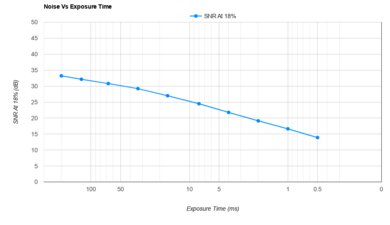
RAW noise handling is okay overall. Noise is slightly more pronounced in low light than on competing APS-C cameras, but it isn't far off of other Canon crop sensor models, like the Canon EOS M50 Mark II. If you'd like a similarly priced camera with better noise handling, check out the full-frame Canon EOS R8.
The camera can record standard 4k resolution video but also includes a '4k Fine' option, which is oversampled from the full 7k resolution of the sensor. In '4k Fine' resolution, the camera can only record at 24 or 30 fps.
In addition to supporting Canon Log 3, the R7 includes a handy 'View Assist' feature that applies a LUT to your footage in-camera, so you can preview how the footage will look after color-grading while you shoot.
Note: All-I is only available in time-lapse mode.
The camera can record at up to 60 fps in 4k without a crop, which is fantastic for capturing smooth action footage or incorporating slow-mo shots into your videos. If you need a camera that can record 4k at 120 fps, check out the Sony α6700.
The camera's 4k internal recording capability is fantastic. It supports 10-bit 4:2:2 recording internally when recording in C.LOG 3 to capture a wider range of detail and color, giving you more flexibility with your footage in post. Like other Canons, there's an 'HDR PQ' mode with a gamma curve tailored for content on HDR displays. The camera records its highest bit rates with 'HDR PQ' enabled. There's no recording time limit, either, which is great. The camera also has excellent heat management, with no overheating interruptions throughout its over two-hour battery life for video.
The camera's autofocus is incredible in 4k video mode. The camera supports both face and eye detection, and it does a fantastic job of keeping moving subjects in focus, whether you manually select a target or let it automatically detect a subject. Shifts in focus are quick and smooth. You can also fine-tune the AF settings to adjust its speed and sensitivity, depending on how you need the AF to behave.
The 4k video quality is great. In more controlled lighting conditions, videos look crisp, with colors that pop straight out of the camera. It performs well in low light, too. It preserves a lot of shadow detail, and noise is fairly minimal.
If you want even higher quality video, you can also set the resolution to '4k Fine,' which is oversampled from 7k. You can see a test scene extract of '4k Fine' footage here.
In standard 4k resolution, the rolling shutter effect isn't too bad. There's some noticeable skewing with vertical lines, but it's most apparent with quick or sudden camera movements.
When shooting in '4k Fine' resolution, the rolling shutter is much worse, with a 9.3º angle of distortion (which would result in a 'Rolling Shutter Effect' score of 4.3). You can see the rolling shutter effect in '4k Fine' resolution here.
In 1080p, the camera can record regular video at up to 60 fps. It also has a 'high frame rate' mode that can record slow-motion videos at 120 fps, with a playback speed of 30 fps for 4x slow-motion. There's no audio in this mode.
Internal recording is similarly excellent in 1080p. You get 10-bit 4:2:2 recording, high bit rates, and no video time limit.
The autofocus performs just as well in FHD as it does in 4k. It has very little trouble keeping up with moving subjects in video.
The rolling shutter effect is still present when recording in 1080p. You'll notice some skewing with vertical lines when panning the camera. It gets quite bad with very fast camera movements.
The Canon EOS R7 has great dynamic range in video. It doesn't have the widest total dynamic range above the background floor, with about a stop less than the Sony α6700, for example. However, a lot of those stops are usable, which is great, giving you some flexibility to capture more information in trickier lighting conditions.
Tested settings:
- Resolution: 4k
- Frame Rate: 30 fps
- Log Format: C.Log3
Most of the camera's dynamic range is allocated below middle gray, but even then, the flexibility in the shadows is only decent. It's also pretty good at retaining highlight detail at moderate ISO settings.
Tested settings:
- Resolution: 4k
- Frame Rate: 30 fps
- Log Format: C.Log3
The Canon EOS R7 includes two SD card slots, which is great for those who like to keep a running backup or separate JPEG and RAW files. They're also conveniently placed on the side of the camera, making it easy to switch out cards when using a tripod.
The inputs and outputs are on the camera's left side and covered by rubber flaps with gaskets to keep moisture out. There's both a headphone and microphone jack, along with a Micro HDMI port, so you'll likely need an adapter to connect an external recorder or display.











